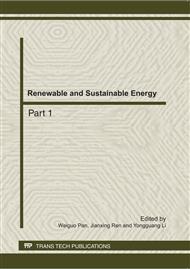p.922
p.927
p.931
p.937
p.952
p.956
p.963
p.969
p.974
Hybrid Electric and Battery Electric City Buses Benefit Analysis Based on Lifecycle Cost and Emission
Abstract:
This paper took hybrid electric bus and battery electric bus as research subjects, built lifecycle cost model based on purchase cost and using cost, calculated well-to-wheel carbon dioxide emission based on GREET model, analyzed current situation and foreground of new energy buses compared with conventional diesel bus. The results shows hybrid electric bus has advantages on cost and emission in the coming decade. While lifecycle cost of battery electric bus is too high today, and the cost in the future depends on battery technology development.
Info:
Periodical:
Pages:
952-955
Citation:
Online since:
October 2011
Authors:
Price:
Сopyright:
© 2012 Trans Tech Publications Ltd. All Rights Reserved
Share:
Citation:


